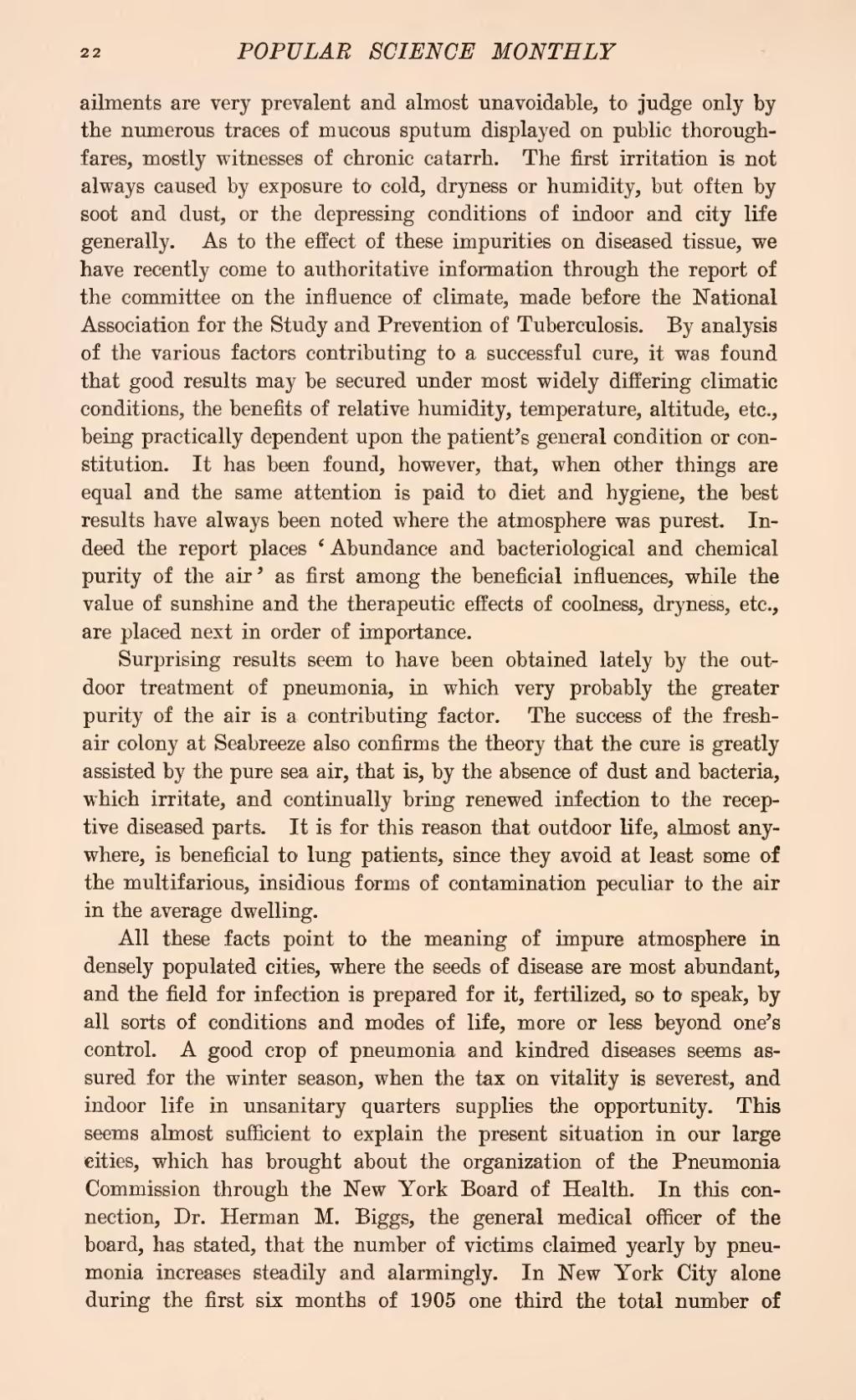ailments are very prevalent and almost unavoidable, to judge only by the numerous traces of mucous sputum displayed on public thoroughfares, mostly witnesses of chronic catarrh. The first irritation is not always caused by exposure to cold, dryness or humidity, but often by soot and dust, or the depressing conditions of indoor and city life generally. As to the effect of these impurities on diseased tissue, we have recently come to authoritative information through the report of the committee on the influence of climate, made before the National Association for the Study and Prevention of Tuberculosis. By analysis of the various factors contributing to a successful cure, it was found that good results may be secured under most widely differing climatic conditions, the benefits of relative humidity, temperature, altitude, etc., being practically dependent upon the patient's general condition or constitution. It has been found, however, that, when other things are equal and the same attention is paid to diet and hygiene, the best results have always been noted where the atmosphere was purest. Indeed the report places 'Abundance and bacteriological and chemical purity of the air' as first among the beneficial influences, while the value of sunshine and the therapeutic effects of coolness, dryness, etc., are placed next in order of importance.
Surprising results seem to have been obtained lately by the outdoor treatment of pneumonia, in which very probably the greater purity of the air is a contributing factor. The success of the fresh-air colony at Seabreeze also confirms the theory that the cure is greatly assisted by the pure sea air, that is, by the absence of dust and bacteria, which irritate, and continually bring renewed infection to the receptive diseased parts. It is for this reason that outdoor life, almost anywhere, is beneficial to lung patients, since they avoid at least some of the multifarious, insidious forms of contamination peculiar to the air in the average dwelling.
All these facts point to the meaning of impure atmosphere in densely populated cities, where the seeds of disease are most abundant, and the field for infection is prepared for it, fertilized, so to speak, by all sorts of conditions and modes of life, more or less beyond one's control. A good crop of pneumonia and kindred diseases seems assured for the winter season, when the tax on vitality is severest, and indoor life in unsanitary quarters supplies the opportunity. This seems almost sufficient to explain the present situation in our large cities, which has brought about the organization of the Pneumonia Commission through the New York Board of Health. In this connection, Dr. Herman M. Biggs, the general medical officer of the board, has stated, that the number of victims claimed yearly by pneumonia increases steadily and alarmingly. In New York City alone during the first six months of 1905 one third the total number of

